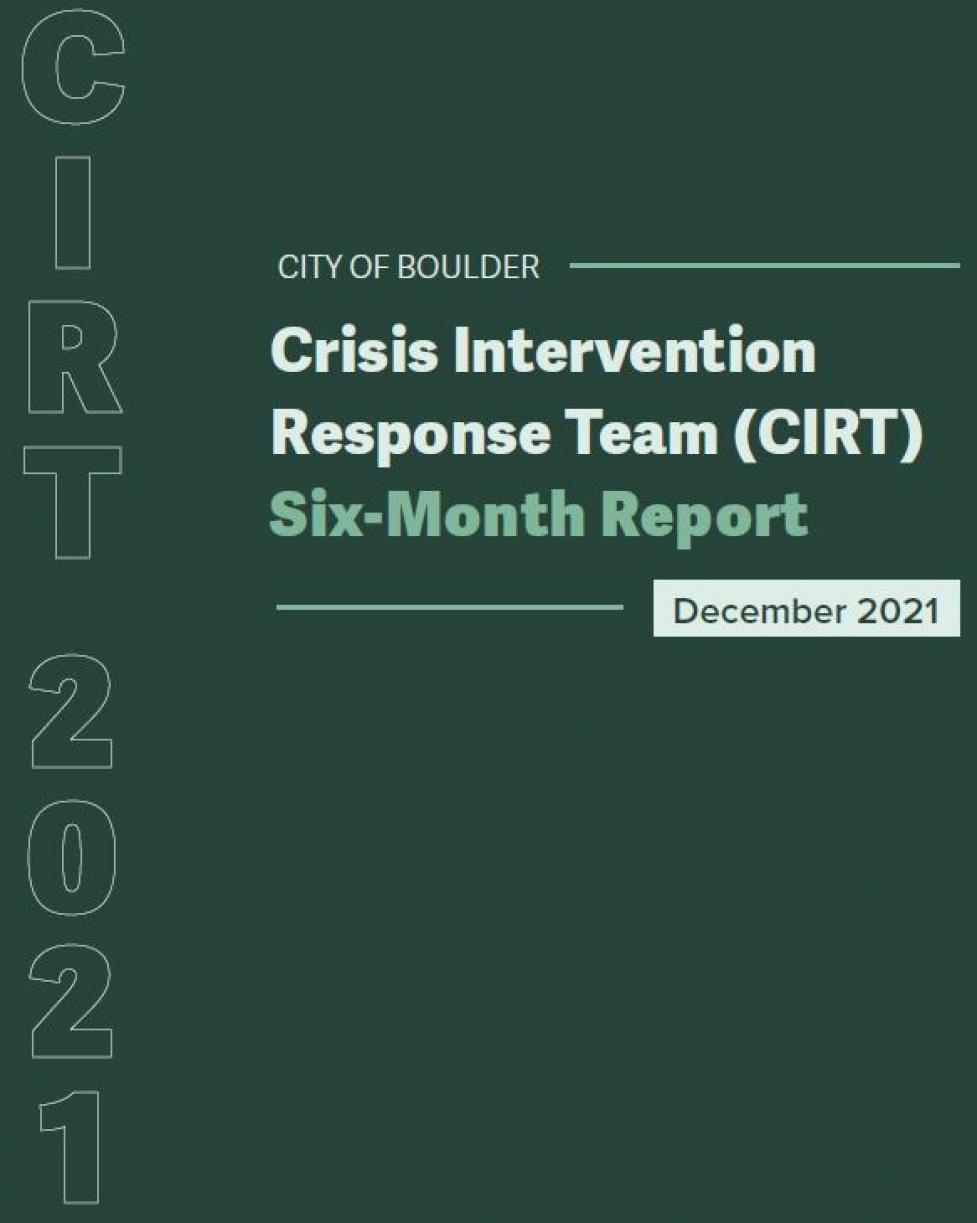City of Boulder releases its first Crisis Intervention Response Team report
Program provides support and service connections to those in crisis.
The Crisis Intervention Response Team (CIRT) program launched in February 2021 to help meet the needs of community members experiencing behavioral health crisis. Behavioral health refers to instances where a person is experiencing mental health issues and/or a substance use disorder.
CIRT is a co-response team composed of licensed behavioral health clinicians from the city’s Housing and Human Services Department paired with Boulder Police Department officers. Under this program, clinicians and police jointly respond to calls involving a behavioral health crisis to help de-escalate situations and connect those in need to available services.
“The CIRT program was developed to help fill a gap in responding to concerning, but noncriminal behavior. Teaming behavioral health specialists with officers allows us to offer the best available response in these types of situations,” said Housing and Human Services Policy Manager Wendy Schwartz. “We’ve seen substantial utilization of the program in its first few months and are proud of the impact it has made in our community.”
Police Chief Maris Herold agreed, saying “The co-responder program has had a tremendously positive impact in the Boulder community and the police department in several aspects. Our officers are greatly appreciative of the CIRT partnership because of the knowledge, resources and diverse skill set they bring. This team approach helps our officers in responding to calls as well as our community members in crisis.”
The report summarizes the first six months of CIRT operation. Key highlights include:
- CIRT responded to 523 calls for service, with an increasing response trend which appears to be related to both increased utilization of CIRT and increased demand – some of which may be impacted by seasonal trends.
- Demand data indicates that overall CIRT program hours are well matched to hours when the service is needed in the community.
- About one in four CIRT encounters involved a person experiencing homelessness. Another 8% involved an individual at risk of losing housing.
- Approximately 25% of 309 unique clients had more than one encounter with the CIRT.
- CIRT clinicians initiated involuntary mental health holds in about 5% of calls. One of the benefits of CIRT expertise on behavioral health calls is the reduction of unnecessary involuntary commitments, which lessens negative impacts to people by preserving their autonomy and reduces unnecessary utilization of emergency medical services and emergency departments.
- Of the 523 encounters involving CIRT, only two (0.4%) involved use of force by an officer.
- Only six (1%) of the 523 encounters ended in arrest.
The city will publish annual CIRT program reports, with the goal of continuous improvement and the ability to compare trends or changes over time. The city has also applied for federal funding to support an independent program evaluation by professional research consultants.
As the CIRT program continues, the city will explore opportunities to expand capacity or implement complementary programs to support behavioral health. Crisis intervention is just one piece of the broad spectrum of behavioral health treatment needs supported by the city and its regional partners.
For more information, visit the city's website.

